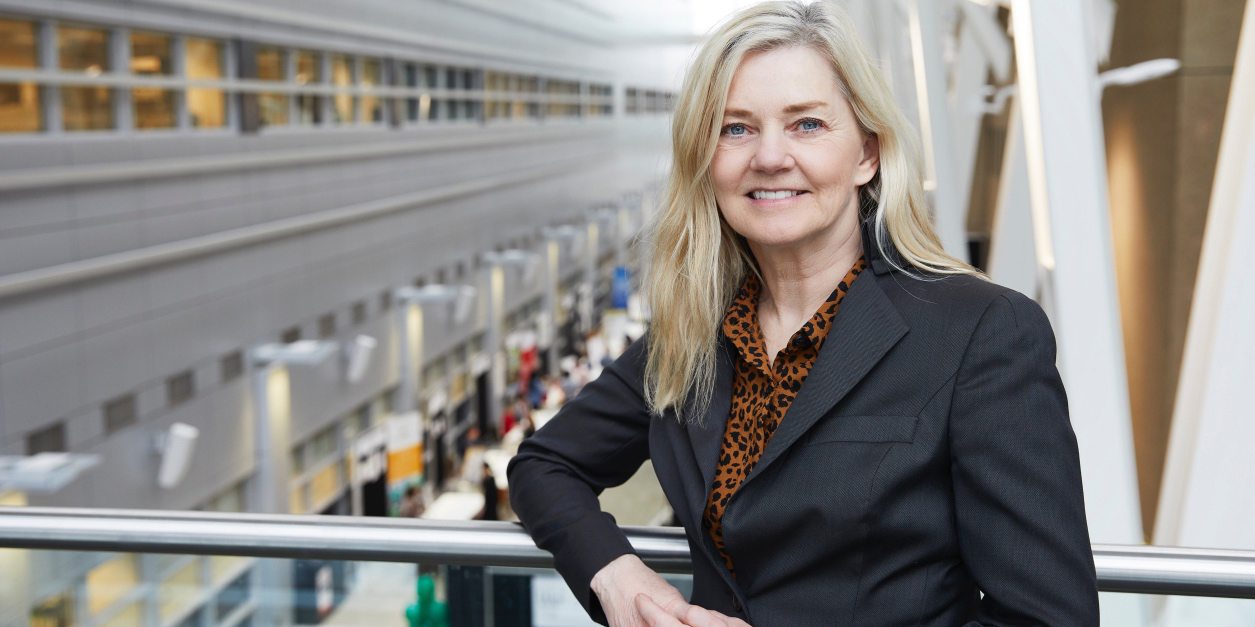Pioneering support for physician wellness
March 13, 2019

“We thought, we need to share this knowledge, not just publish more papers. We need to help educate physicians about wellness.”
Back in 2004 when Dr. Jane Lemaire became vice-chair of physician wellness in the University of Calgary’s department of medicine, the issue was in its infancy.
“In terms of being able to find a resource (on physician wellness), there was almost nothing. And even more importantly, there was very little awareness,” she explains. “The attitude was, ‘You put your patients before everything.’ It was a huge paradigm to shift.”
Fast forward to today, and the creation of Well Doc Alberta, and it’s clear Dr. Lemaire and her team have managed to not only shift the paradigm, but also publish research and build a wide resource network on physician health and wellness.
Since receiving initial funding for Well Doc Alberta from the College of Physicians and Surgeons of Alberta and the Cumming School of Medicine in early 2018, her team have managed to build a website and online platform to collaborate on physician wellness projects, publish a directory of wellness experts, initiatives, and ideas in progress, and organize a symposium for March 2019.
But Dr. Lemaire says the foundation for it all began more than 15 years ago, when she set out to gather data on an issue very few physicians were talking about.
Dr. Lemaire and sociology professor Jean Wallace, an expert in work-life balance, interviewed 50 doctors from the department of medicine – from across a range of life stages and fields of medicine – about physician wellness, and started feeding back pieces of their analysis through a series of “one-pagers”. As she explains it, it opened the door to a dialogue.
“Physicians would say “Wow, I read that and I thought I was the only one who felt that way.”
Dr. Lemaire and her team re-created this Seeking Balance study for the Calgary Health Region, which included over 3,000 doctors. Recurring themes began to emerge: a lack of healthy food at work, no quiet space to rest, the expectation to always be accessible.
“We thought, we need to share this knowledge, not just publish more papers,” explains Dr. Lemaire. “We need to help educate physicians about wellness.”
With this goal, the Well Doc Initiative was born. Developing modules on issues such as nutrition, coping strategies, and resilience, Dr. Lemaire and her team followed four basic rules. Have doctors talking to doctors. Give a take-away that will help with wellness. Use every presentation to build collegial support. Provide evidence-based recommendations.
“If you’re a surgeon, for example, you face different pressures than a family doctor. So let’s develop a peer support team for surgeons, related to adverse events, and start to build a curriculum that’s systematic and addresses specific needs.”
Over time, Dr. Lemaire and her team developed more than a half dozen Well Doc modules and by 2010, the Well Doc Initiative was underway. She started giving presentations, often to the same physicians who had completed her survey years earlier.
“People would say ‘I answered that question on the survey’, so it was very relevant to them”. Dr. Lemaire was doing a presentation almost every two weeks.
“Every time I got a request, I said ‘Yes’. We just kept going wider and bigger, even though the entire time, my only formal job was in the department of medicine (at the University of Calgary).”
She eventually became known across the province, travelling to small communities like Taber and Pincher Creek with her modules.
“Our little tiny team just kept plugging away,” says Dr. Lemaire.
Yet despite her leadership role in the field, Dr. Lemaire and Alicia Polachek, the wellness senior researcher and program director, became more and more aware of the need to formalize the team’s work as a system level approach, bring all the people working in physician wellness together, and build a curriculum.
Today, Well Doc Alberta is the culmination of these goals, and with new funding to build this project over the next three years, she is looking forward to creating new resources and targeting specific issues for each physician group.
“If you’re a surgeon, for example, you face different pressures than a family doctor,” explains Dr. Lemaire. “So, let’s develop a peer support team for surgeons, related to adverse events, and start to build a curriculum that’s systematic and addresses specific needs.”
The opinions stated by Physician Changemakers are made in a personal capacity and do not reflect those of the Canadian Medical Association and its subsidiaries.
